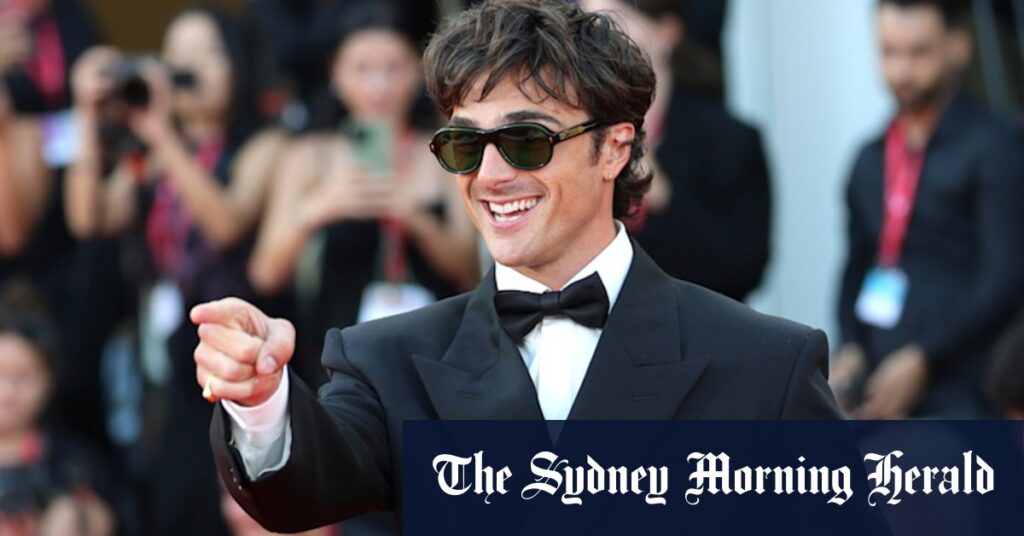
This year’s Venice Film Festival concluded with its characteristic flair, featuring fireworks, spritz cocktails, and a slew of Lion awards. The festival showcased a diverse array of films, from a Hungarian drama exploring the study of trees to a gripping narrative set amidst an emergency response team in Gaza.
Among the standout performances, Jacob Elordi’s portrayal of the tragic monster in Guillermo del Toro’s adaptation of Frankenstein has positioned him as a strong contender for next year’s Oscars. Critics were divided on the film itself, describing it as “bombastic,” but Elordi’s performance was widely praised as the film’s saving grace.
Jacob Elordi’s Breakthrough in “Frankenstein”
Elordi’s portrayal of the lonely monster, who demands a companion from his creator, Dr. Frankenstein, has been lauded for its depth and emotional resonance. The film, starring Oscar Isaac as Dr. Frankenstein, introduces a unique narrative twist by allowing the creature to share his persecuted perspective. As noted by Vulture, “the movie roars to life” during these moments, with Elordi bringing a fresh vitality to the creature’s awakening. Indiewire echoed this sentiment, stating that Elordi “becomes the soul of a movie that may not have had one without him.”
Frankenstein was one of three Netflix films in the 21-strong competition at Venice, but the festival’s top honor, the Golden Lion, went to a different kind of American film.
Jim Jarmusch’s Unexpected Win
Jim Jarmusch’s Father Mother Sister Brother emerged as a surprise winner. The film, a series of vignettes about familial misunderstandings, features performances by Tom Waits, Cate Blanchett, and others. Despite its understated nature, the film resonated with the jury, leading to its unexpected victory.
Before the awards ceremony, many believed The Voice of Hind Rajab would take the top prize. This harrowing true story, directed by Tunisian filmmaker Kaouther Ben Hania, recounts a young girl’s ordeal in Gaza. The film features the real voice of the child, recorded during her calls for help, and was supported by high-profile producers such as Brad Pitt and Joaquin Phoenix.
The film received a record 23-minute standing ovation at its premiere, a testament to its emotional impact.
Political Undercurrents and Audience Reactions
The Venice jury, led by American director Alexander Payne, awarded The Voice of Hind Rajab the Grand Jury Prize, a decision seen by some as an attempt to avoid politicizing the Golden Lion. This choice sparked criticism from Italy’s left-leaning media and festivalgoers, some of whom participated in protests against the ongoing conflict in Gaza.
Meanwhile, Hungarian director Ildiko Enyedi’s Silent Friend captivated audiences with its unique storytelling, set across different eras within a university arboretum. The film’s young star, Luna Wedler, won the Marcello Mastroianni prize for best young actor, and the audience’s applause reached its peak during the credits for the film’s botanical cast, a festival first.
American Cinema and Festival Highlights
Gus Van Sant’s Dead Man’s Wire, a 1970s-set thriller, also charmed audiences, reflecting a broader acceptance of American films at the festival. The festival’s best director award went to Ben Safdie for The Smashing Machine, featuring Dwayne “The Rock” Johnson as an MMA fighter.
Netflix’s other entries included Kathryn Bigelow’s A House of Dynamite and Noah Baumbach’s Jay Kelly, both of which generated significant buzz. Amazon’s After the Hunt, starring Julia Roberts and Andrew Garfield, and Focus Features’ Bugonia, directed by Yorgos Lanthimos, were also notable contenders.
Despite the overwhelming number of films, this year’s Venice Film Festival was widely regarded as a success, offering a blend of glamour and cinematic excellence. While Cannes remains the preeminent film festival, Venice continues to uphold its commitment to celebrating both mainstream and avant-garde cinema.







